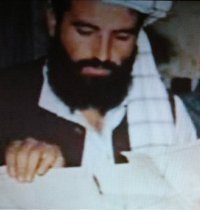The US has again struck at a terrorist safehouse in Pakistan’s Taliban-controlled tribal agencies.
Predators or the more sophisticated Reapers fired two Hellfire missiles at a compound in the village of Darga Mandi, which is just outside Miramshah, the main town in North Waziristan.
Four “militants” were reported killed and two more are said to have been wounded. No senior al Qaeda, Taliban, or allied terror group operatives have been reported killed in the strike.
The strike outside Miramshah is the second in the tribal agencies today; an earlier strike was carried out in the village of Shaktoi Algad in South Waziristan, a stronghold of Hakeemullah Mehsud, the leader of the Movement of the Taliban in Pakistan. Four Taliban fighters were reported killed in the Shaktoi strike.
There have been three strikes in North and South Waziristan over the past two days. In addition to today’s two strikes, on July 24, the US struck a Taliban compound near Wana, killing 16 Taliban fighters. The July 24 attack took place in a region controlled by Mullah Nazir, a Taliban leader with close ties to Osama bin Laden and Mullah Omar, as well as Pakistan’s military and intelligence services.
The village of Darga Mandi is in the sphere of influence of the Haqqani Network, a Taliban group led by mujahedeen commander Jalaluddin Haqqani and his son Siraj. The Haqqanis are closely allied to al Qaeda and to the Taliban, led by Mullah Omar. Siraj Haqqani is the leader of the Miramshah Regional Military Shura, one of the Taliban’s top four commands; he sits on the Taliban’s Quetta Shura; and he is also is a member of al Qaeda’s Shura Majlis. The Haqqanis are based on both sides of the Afghan-Pakistani border.
Just last week, the US added Nasiruddin Haqqani, a brother of Siriaj, to the list of specially designated global terrorists. Nasiruddin has traveled to Saudi Arabia and the United Arab Emirates between 2004-2009 to carry out fundraising for the Haqqani Network, al Qaeda, and the Taliban.
The US killed Mohammed Haqqani, another of the 12 sons of Jalaluddin Haqqani, in the Feb. 18 airstrike in Danda Darpa Khel just outside Miramshah, the main town in North Waziristan. Mohammed served as a military commander for the Haqqani Network.
Despite the known presence of al Qaeda and other foreign groups in North Waziristan, and requests by the US that action be taken against these groups, the Pakistani military has indicated that it has no plans to take on the Haqqani Network or allied Taliban leader Hafiz Gul Bahadar. The Haqqanis and Bahadar are considered “good Taliban” by the Pakistani military establishment as they do not carry out attacks inside Pakistan.
Background on US strikes in Pakistan
Today’s strike is the fourth reported inside Pakistan in July. The US carried out only one strike between June 29 and July 23, marking the slowest operational tempo period since the attacks were ramped up in July 2008. Over the past year, the US has averaged between six to eight strikes a month.
So far this year, the US has carried out 49 strikes in Pakistan; all but five have taken place in North Waziristan. The other five strikes took place in South Waziristan and the tribal agency of Khyber.
The US is well on its way to exceeding last year’s strike total in Pakistan. In 2009, the US carried out 53 strikes in Pakistan; and in 2008, the US carried out 36 strikes in the country. [For up-to-date charts on the US air campaign in Pakistan, see LWJ Special Report, Charting the data for US airstrikes in Pakistan, 2004 – 2010.]
Over the past several months, unmanned US Predator and Reaper strike aircraft have been pounding Taliban and al Qaeda hideouts in the tribal areas in an effort to kill senior terror leaders and disrupt the networks that threaten Pakistan, Afghanistan, and the West. [For more information, see LWJ report, Senior al Qaeda and Taliban leaders killed in US airstrikes in Pakistan, 2004 – 2010.]








